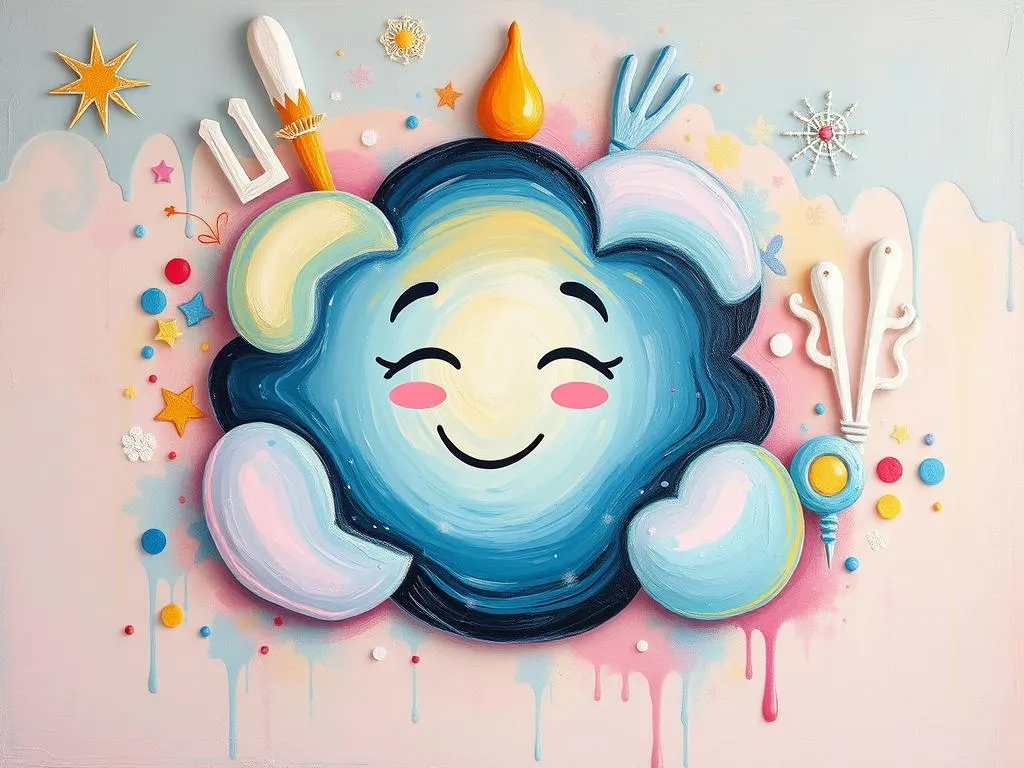
Introduction
Dreams have fascinated humanity for centuries, serving as glimpses into our subconscious minds. They often carry profound meanings, reflecting our deepest fears, desires, and unresolved conflicts. The relevance of dream analysis lies not only in understanding ourselves better but also in deciphering the messages our minds attempt to convey during sleep. One of the most intriguing aspects of dream interpretation is the symbolic nature of dreams, where seemingly mundane events can hold significant meaning. In this article, we will explore the symbolism and meanings behind common dream symbols, delve into various scenarios that can alter interpretations, and provide real-life connections that may help you gain insights from your dreams.
Symbolism and Meaning
Dream symbols can vary greatly based on personal experiences, cultural backgrounds, and individual psychology. However, some symbols appear frequently across different dream narratives. For example, water is a potent symbol representing emotions and the subconscious. Calm waters may signify tranquility and peace, while turbulent waters can indicate chaos and emotional unrest. A house, another common symbol, often represents the self or the dreamer’s psyche. Different rooms might symbolize different aspects of the dreamer’s personality or life situations.
Consider the symbol of flying. Many people dream of soaring through the skies, which can represent freedom, ambition, and a desire to escape constraints. Yet, the feeling associated with flying is crucial. If you feel exhilarated, it may indicate personal growth or liberation. Conversely, if you feel frightened, it could reflect a fear of losing control or being overwhelmed by life’s demands.
Another prevalent symbol is falling. This often evokes feelings of anxiety and insecurity. Falling can signify a loss of control, fear of failure, or a significant life change that leaves one feeling unsteady. The context of the fall matters greatly—are you falling from a great height, or are you gently descending? The former might represent a more serious issue or fear, while the latter could suggest a transition or a letting go of something burdensome.
Animals frequently appear in dreams and can embody various traits. For instance, a snake may symbolize transformation or healing due to its ability to shed its skin, but it can also evoke fear, representing deceit or hidden threats. Similarly, birds often symbolize freedom and transcendence, yet their specific type can alter meaning: a crow might connote mystery or bad luck, while a dove usually signifies peace and love.
In analyzing dream symbols, it’s essential to consider the context and emotions present during the dream. Your personal associations with symbols greatly influence their meanings. Engaging in self-reflection about what these symbols evoke for you personally can lead to a more nuanced understanding.
Key Scenarios and Variations
The interpretation of dreams can significantly shift based on the specific scenarios and variations presented within them. For instance, if you dream of being chased, the pursuer can alter the dream’s meaning. Being chased by a friend might indicate unresolved issues with that person, while being pursued by a monstrous creature could symbolize an overwhelming fear or anxiety you wish to escape.
Another common dream scenario involves losing something significant, such as a beloved item or even a person. The loss of a watch might symbolize the feeling of time slipping away, reflecting anxieties about aging or missed opportunities. In contrast, losing a loved one in a dream could represent feelings of abandonment or the fear of change, especially if that person holds a significant role in your life.
Dreams about exams are also prevalent, particularly among students or those in high-pressure jobs. These dreams often relate to feelings of inadequacy or self-evaluation. If you dream of failing an exam, it may indicate self-doubt or fear of being judged. Alternatively, succeeding in a dream exam might suggest confidence and a sense of preparedness for upcoming challenges.
Consider the scenario of traveling or embarking on a journey. This often symbolizes personal growth, exploration, and new experiences. Dreaming of a road trip might suggest a desire for adventure or a need to escape daily routines. However, if the journey is fraught with obstacles—like getting lost or facing unforeseen delays—it could signify resistance to change or feelings of being unprepared for life’s challenges.
Another noteworthy scenario is that of being naked in public, which can evoke feelings of vulnerability and exposure. This dream often reflects anxiety about how others perceive you or concerns about authenticity. If you feel confident despite your nudity in the dream, it may indicate a level of self-acceptance and comfort in your own skin. Conversely, feelings of shame or embarrassment suggest a struggle with self-image or fear of judgment.
These variations highlight the intricate tapestry of dream interpretation, where individual experiences and context blend to create unique narratives. It’s crucial to reflect on your personal feelings and associations with each scenario to derive meaningful insights from your dreams.
Real-Life Connections and Takeaways
The insights gleaned from dream symbolism can offer valuable perspectives on our waking lives. Engaging in self-reflection after experiencing a vivid dream can help you connect the themes and emotions to real-life situations. For instance, if you often dream about flying, it might be time to evaluate areas of your life where you seek greater freedom or autonomy. Consider whether there are aspects of your personal or professional life that feel restrictive.
Similarly, if you find yourself frequently dreaming of falling, it may be beneficial to explore areas where you feel insecure or out of control. Are there personal relationships or work situations that leave you feeling unsteady? Addressing these issues in your waking life could lead to significant emotional relief.
In practical terms, keeping a dream journal can be immensely helpful. Write down your dreams as soon as you wake up, noting any symbols, feelings, and scenarios. Over time, patterns may emerge, offering deeper insights into your subconscious mind. Reflecting on these entries can help you identify recurring themes and how they connect to your daily life.
Consider discussing your dreams with someone you trust, whether it’s a friend or a therapist. Sharing your experiences can provide new perspectives and facilitate deeper understanding. Sometimes, hearing another person’s interpretation can shed light on aspects of your dream you may have overlooked.
Moreover, engaging in mindfulness practices such as meditation or yoga can create a conducive environment for dream exploration. These practices may help calm your mind and enhance your connection to your inner self, allowing for more vivid and meaningful dream experiences.
In summary, dreams serve as a gateway to understanding ourselves and the complexities of our emotions. By engaging with the symbolism inherent in our dreams and connecting these insights to our waking lives, we can embark on a journey of personal growth and self-discovery. Take time to reflect personally on your dreams, considering how they resonate with your life experiences. The messages conveyed through dreams can guide you toward understanding your deepest desires, fears, and aspirations, ultimately enriching your waking life.







